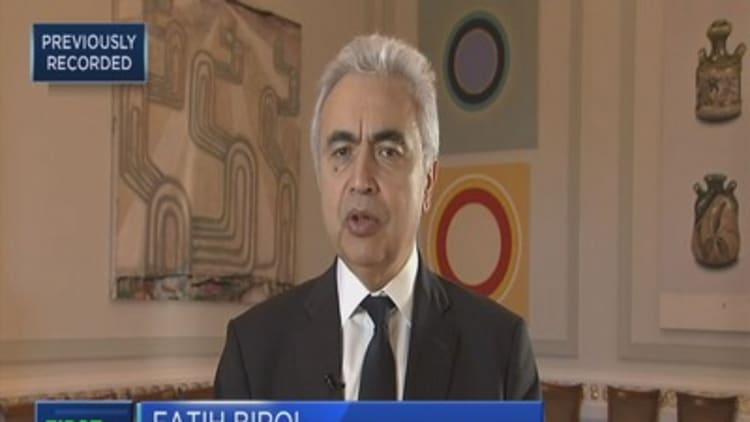
U.S. shale oil producers would need to add the equivalent of Russia's entire crude oil production within just seven years to head off a global shortage, according to a global energy watchdog.
The International Energy Agency (IEA) said Tuesday there will be robust demand growth for oil over the next few years driven by the rise in industry, aviation, and petrochemical needs
But Fatih Birol, the executive director of the Paris-based group, told CNBC's Street Signs that because of the current low number of newly approved drilling projects in countries such as Saudi Arabia or Russia, the world can expect a supply crunch developing by the mid-2020s.
The economist said while some have pointed to the ability of U.S. shale oil to make up the difference, that theory would be severely tested as between now and 2025, the U.S would need to add more than 10 million barrels per day.
"In other words, the U.S. needs to add one single Russia in seven years time in order to avoid a major tightening in the markets," said Birol before adding, "It can happen but it would be be a small miracle."
The group's annual World Energy Outlook, published on Tuesday, predicted energy demand to grow by more than a quarter between 2017 and 2040. That figure doubles if there is no improvement from current levels of energy efficiency.
In the near term, however, concerns about oversupply have sent oil prices skidding lower.
Oil prices fell by around 1 percent on Tuesday, with Brent crude sliding below $70 and WTI below $60 per barrel, after U.S. President Donald Trump put pressure on OPEC not to cut supplies to prop up the market.
Both oil price benchmarks have shed more than 20 percent in value since early October.
Birol told CNBC that while it was not his job to comment on the opinion of Trump, there was some merit to keeping prices at lower levels. But Birol said he was hearing from "lots of different corners" that it is time to go back and cut the production and push the prices up.
"I would be very careful to wish to see, even from the producers' point of view, prices go back up again and creating a serious challenge for global economic growth," he said.
The IEA executive director said lower prices were crucial to providing a boost to economic growth, especially in big oil-buying countries such as India.





